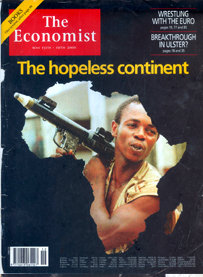Courtesy of Anton Howes (his economic history blog is here) and Marc Andreessen, here are other works of political economy written by 19th century people who could and did make things. There is obviously a rich vein of literature to revisit here. This post is now updated with better links, also courtesy of Anton.
Here is his list, with his comments and a few notes from me.
“The one that immediately sprang to mind was the chemist Andrew Ure (1778-1857) and his [amazon_link id=”5519176558″ target=”_blank” ]The Philosophy of Manufactures[/amazon_link] (1835). (Free online copy.) I believe he had other works on political economy too.
[amazon_image id=”5519176558″ link=”true” target=”_blank” size=”medium” ]The Philosophy of Manufactures[/amazon_image]
My note: Here’s another, [amazon_link id=”1231159510″ target=”_blank” ]The Cotton Manufacture of Great Britain[/amazon_link]:
[amazon_image id=”1231159510″ link=”true” target=”_blank” size=”medium” ]The cotton manufacture of Great Britain systematically investigated Volume 1; with an introductory view of its comparative state in foreign countries[/amazon_image]
And a free online copy.
[amazon_link id=”1170437060″ target=”_blank” ]James Anderson[/amazon_link] (1739-1808) had quite a few writings on political economy, apparently anticipating Ricardo. Here is Observations on the means of exciting national industry. My note: this article says he critiqued Adam Smith.
John Marshall (1765-1845), the flax spinning pioneer, wrote a book called The Economy of Social Life in 1825. I’m not sure if it’s on political economy, but he certainly lectured on the topic later on in life.
[amazon_link id=”1171962851″ target=”_blank” ]John Sinclair[/amazon_link] (1754-1835), the agricultural pioneer and writer, had quite a few works touching on political economy and the national finances. He was apparently a notorious bore offering unsolicited advice on the latter topic in particular. Here is his History of the Public Revenue of the British Empire. [amazon_link id=”1438505582″ target=”_blank” ]Arthur Young [/amazon_link](1741-1820) may have similar works, but was a little more focused on just agriculture.
[amazon_image id=”1170437060″ link=”true” target=”_blank” size=”medium” ]Account of the origin of the Board of Agriculture, and its progress for three years after its establishment. By the president.[/amazon_image] [amazon_image id=”B00A1V6SOA” link=”true” target=”_blank” size=”medium” ]An Account of the Systems of Husbandry Adopted in the More Improved Districts of Scotland: With Some Observations On the Improvements of Which They … Agriculture with a View of Explaining How F[/amazon_image]
[amazon_link id=”1152894218″ target=”_blank” ]Andrew Yarranton[/amazon_link] (1619-1684), the metallurgist and civil engineer, has quite an interesting work called “England’s Improvement by Land and Sea: how to Beat the Dutch without Fighting” (2 vols., 1677–81). Quite interesting, particularly for the time. Here is the free online copy.
[amazon_image id=”1152894218″ link=”true” target=”_blank” size=”medium” ]England’s Improvement by Sea and Land[/amazon_image]
John Chapman (1801-1854), the inventor of the cab, had quite a few well-known (at the time) works on the political economy of India. May well be considered one of the earlier development economists! Here’s The Cotton and Commerce of India.
The actuarial and navigational pioneer Francis Baily (1774-1844) had quite a few works on political economy. One that sticks out as sounding quite interesting is called “The Rights of the Stock Brokers Defended Against the Attacks of the City of London” (1806)
Another actuarial pioneer, Robert Wallace (1697-1771), was also very prolific writing about demography and political economy. One that sounds quite intriguing is called [amazon_link id=”1142321886″ target=”_blank” ]Dissertation on the Numbers of Mankind[/amazon_link] (1753). Here’s the free online version.
[amazon_image id=”1140998420″ link=”true” target=”_blank” size=”medium” ]A dissertation on the numbers of mankind in antient and modern times: in which the superior populousness of antiquity is maintained. With an appendix, … on Mr. Hume’s Political discourse, …[/amazon_image]
A lot of people also tend to overlook [amazon_link id=”1170181791″ target=”_blank” ]Richard Price[/amazon_link]’s (1723-1791) contributions to economics. They’ve been largely overshadowed by his radical political and theological works. But it was he who originally proposed and then advised on the National Debt sinking fund, as well being the person to promote Bayes’ work on statistics and probabilities. Here is Observations on the Debt.
[amazon_image id=”1170181791″ link=”true” target=”_blank” size=”medium” ]An appeal to the public, on the subject of the national debt. The second edition. With an appendix, … By Richard Price, D.D. F.R.S.[/amazon_image]
[amazon_image id=”B00FDVBZHI” link=”true” target=”_blank” size=”medium” ]Observations on Reversionary Payments: On Schemes for Providing Annuities for Widows, and for Persons in Old Age; On the Method of Calculating the Values of Assurances on Lives; And on the National Debt. Also, … a PostScript on the Population of the Kin (Paperback) – Common[/amazon_image]
You may also be interested in the works of William Cobbett (1763-1835). [Me: best known name on this list.] He’s on my list as an agricultural pioneer, but he’s better known as a political radical and for compiling what would later be better known as Hansard. In 1815 he wrote something called [amazon_link id=”1172783411″ target=”_blank” ]Paper against Gold[/amazon_link], (available here too) but there are many other works on economics and political economy.”
[amazon_image id=”1172783411″ link=”true” target=”_blank” size=”medium” ]Cobbett’s Paper against gold: containing the history and mystery of the Bank of England, the funds, the debt, the sinking fund, the bank stoppage, the … shewing, that taxation, pauperism, poverty,[/amazon_image]
Many thanks to Anton for those. And from Marc via Twitter (@pmarca), this one by David Wells, Recent Economic Changes and Their Effect on the Production and Distribution of Wealth and the Well-Being of Society.


